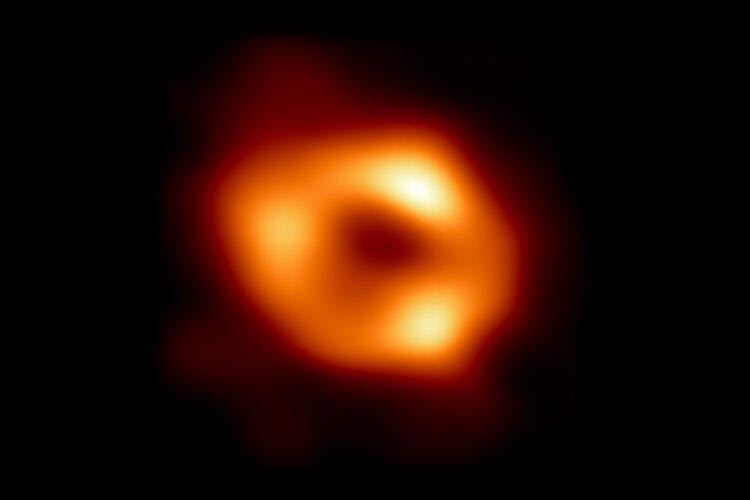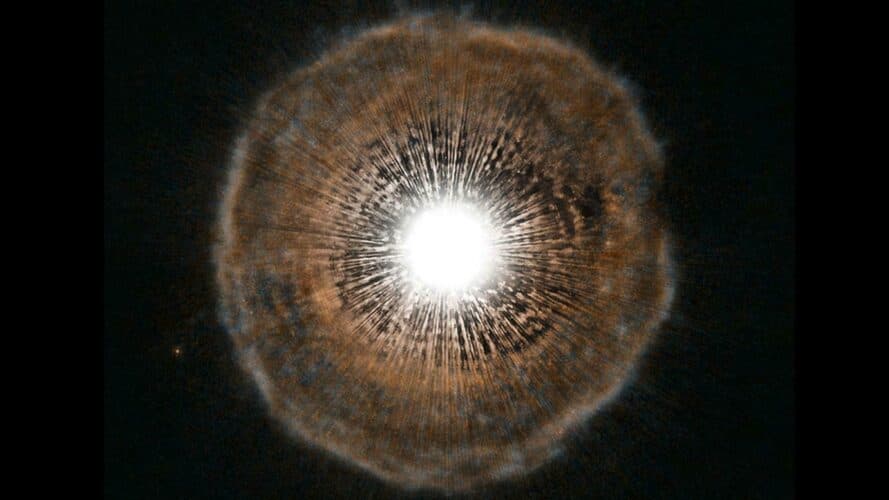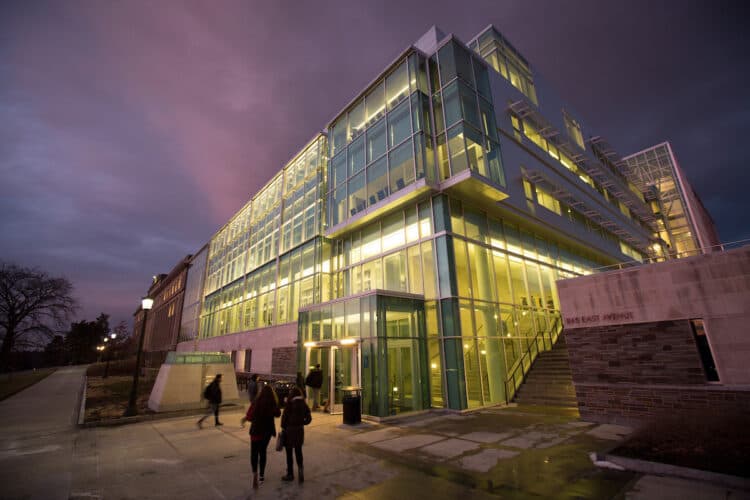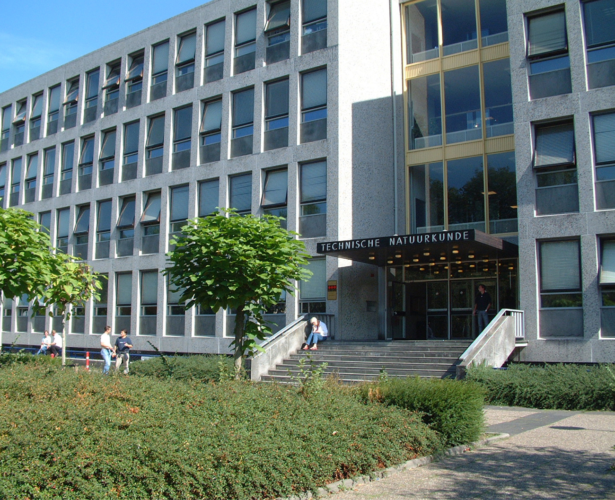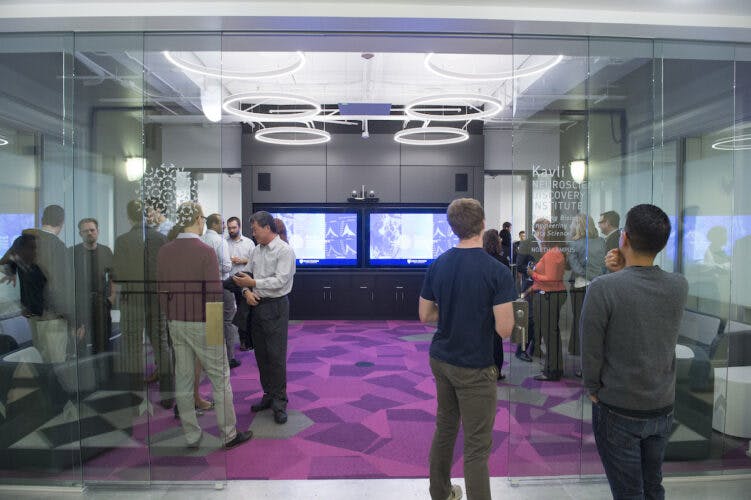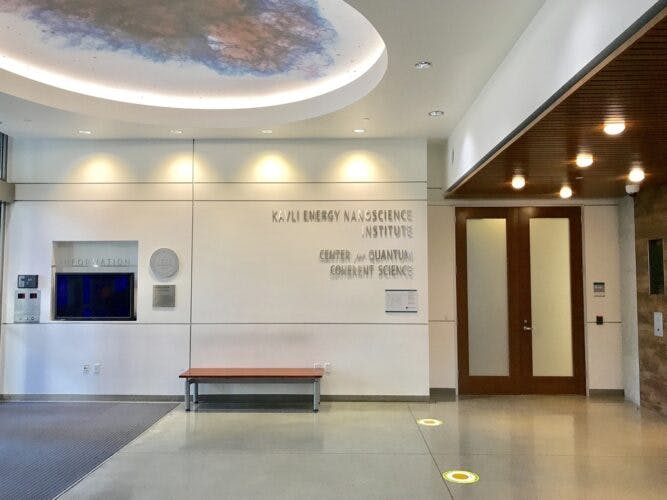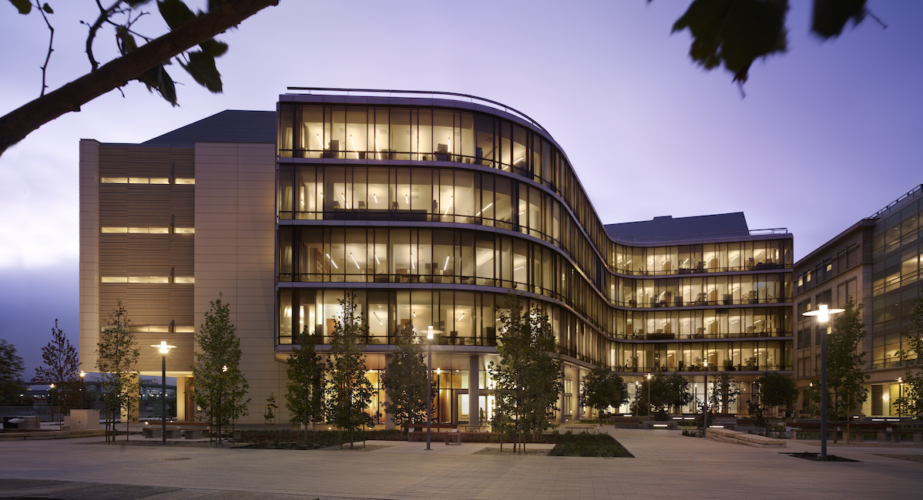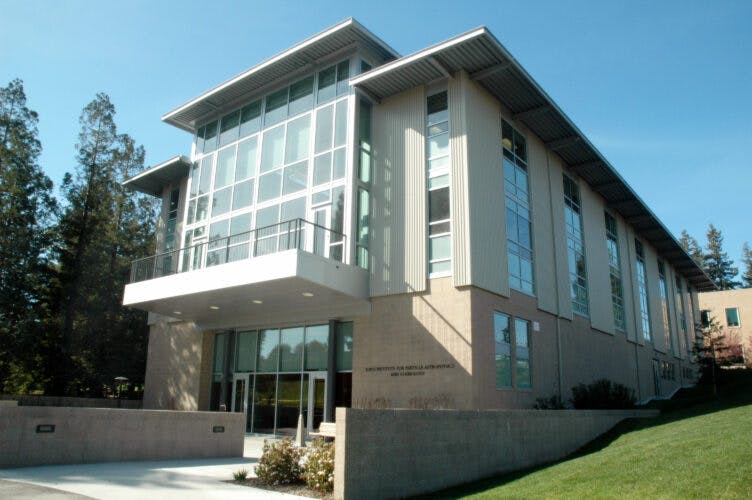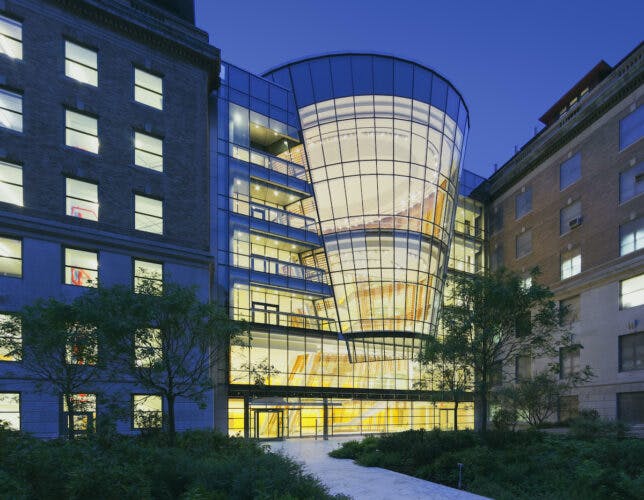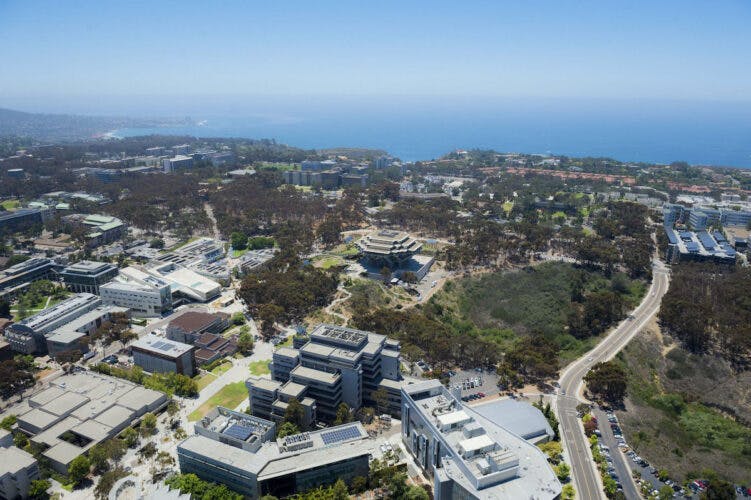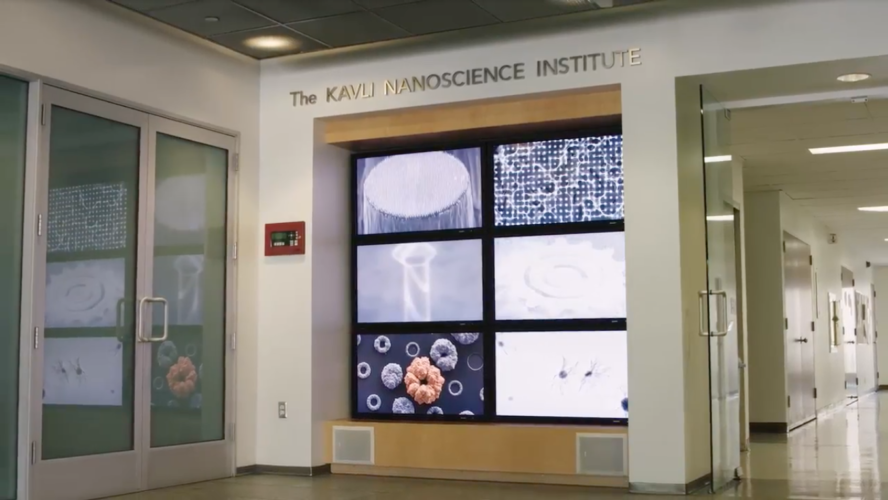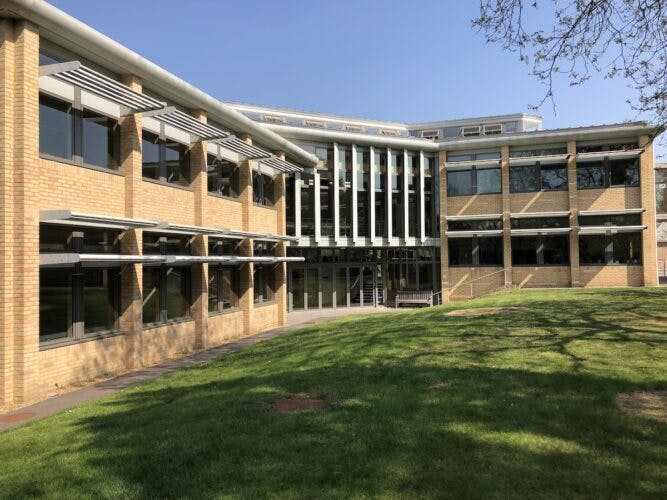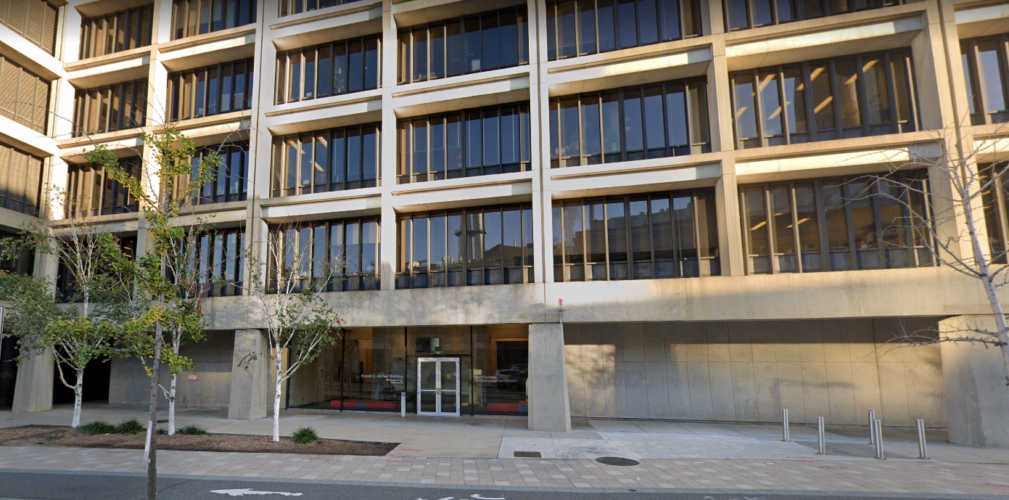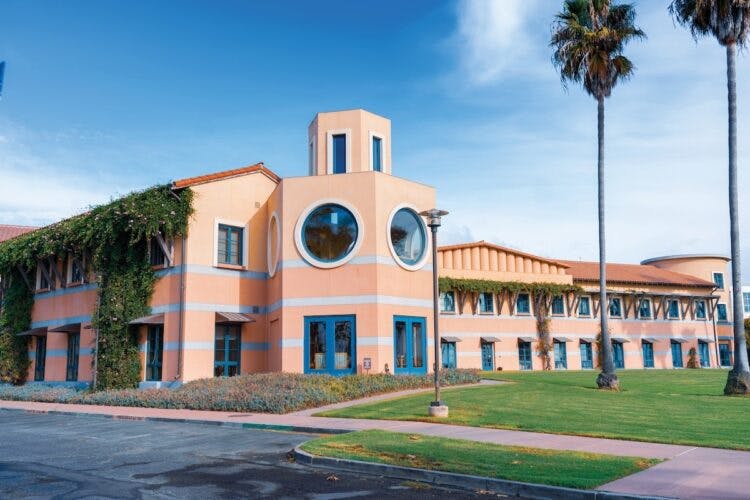
University of ChicagoKavli Institute for Cosmological Physics
Seeking answers to some of the most profound questions about matter, energy and the universe
What is “dark energy” and what role has it played in the evolution of the universe? What physics shaped the universe in its first moments? What can high-energy particles tell us about the unification of forces? The Kavli Institute for Cosmological Physics (KICP) approaches these questions through experiment and theory, with a strong emphasis on seeding and funding new research initiatives. Established in 2001 as the Center for Cosmological Physics at the University of Chicago, it took its current name in 2004 following the award of a generous endowment from The Kavli Foundation, which ensured that the institute would be a permanent entity at the University of Chicago.
AREAS OF INQUIRY
- STRUCTURES IN THE UNIVERSE: This is an experimental effort aimed at gauging the expansion history of the universe and studying dark energy.
- COSMIC BACKGROUND RADIATION: This program focuses on measuring the polarization of the cosmic microwave background radiation to investigate the first instants of the universe.
- PARTICLES FROM SPACE: Bridging the gap between particle physics and astrophysics, this program studies ultra-energetic particles from space to gain insight into their origins, the nature of dark matter, quantum gravity and the structure of space-time itself.
- THEORY: The mission of this program is to develop theoretical models that draw upon and advance KICP’s experimental work. Working at the interface of particle physics, cosmology and gravitation theory, the theory program focuses on topics such as the origin and expansion of the universe, the evolution of large-scale structure, models of dark matter and dark energy and the nature of space-time on small scales.
South Pole Telescope
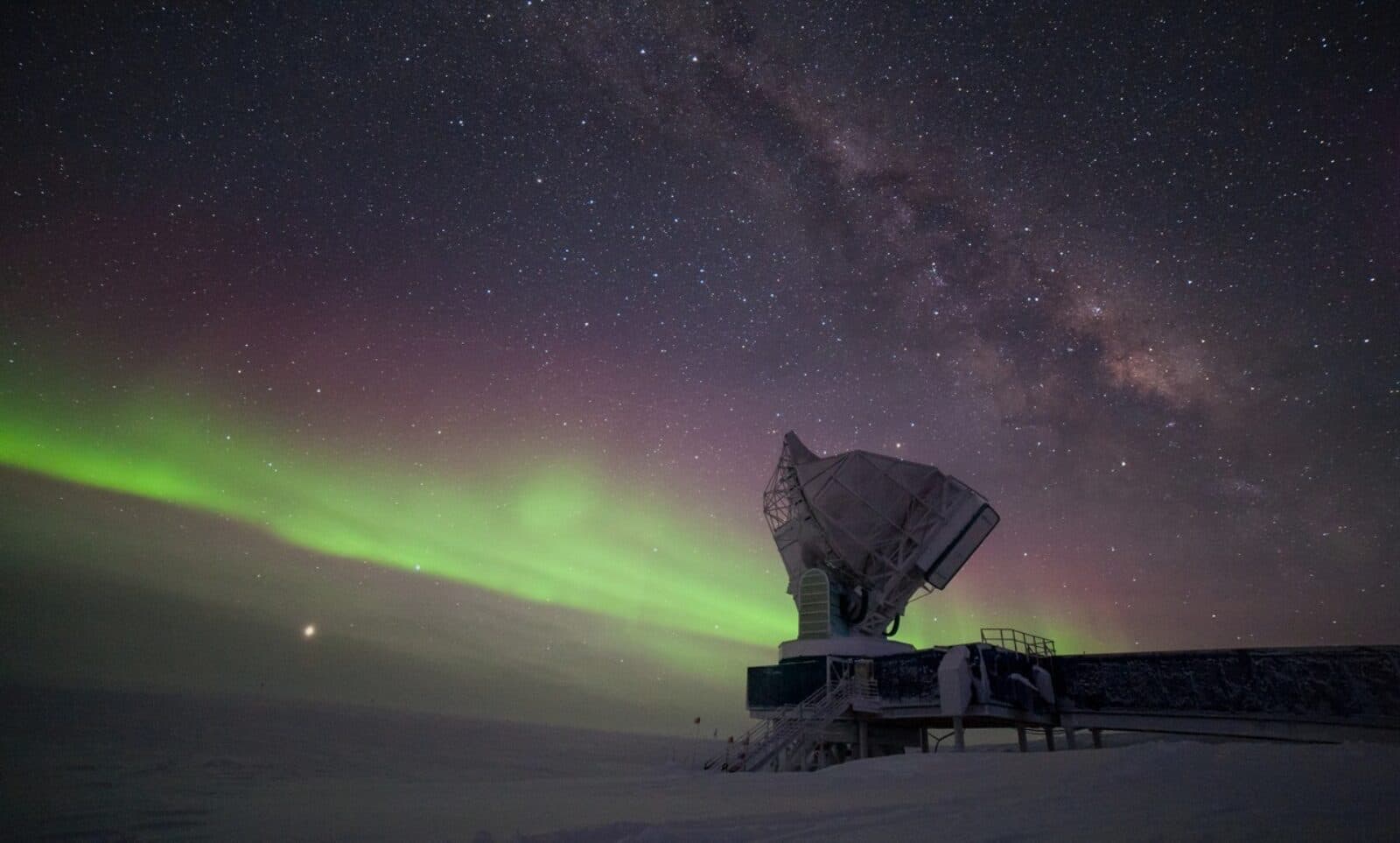
Photo by Dr. Daniel Michalik, NSF
Astrophysics Research Highlights
How the first-ever image of the monster black hole lurking in the heart of the Milky Way dispels any lingering uncertainty about the previously unseen object's nature
Jun 09, 2022
Astrophysics Research Highlights
The James Webb Space Telescope begins to assemble itself and undergo commissioning out on the final frontier
Feb 02, 2022
Neuroscience Research Highlights
Highlights from Kavli Institutes around the world
Dec 16, 2021
Astrophysics Research Highlights
More cosmic data will be collected in the near future than centuries'-worth of skygazing have gathered so far – an exciting development that requires innovative approaches
Dec 13, 2021
Astrophysics Research Highlights
The changing of the seasons is a familiar experience here on Earth and, as it turns out, plenty of other elsewheres, too, with astrophysical and cosmological significance
Sep 13, 2021
More Institutes
At Kavli Institutes around the world, scientists explore the frontiers of science in the fields of astrophysics, nanoscience, neuroscience and theoretical physics.
See all institutesNeuroscience
Columbia University
Cornell University
Neuroscience
Yale University
Nanoscience
University of Oxford
Nanoscience
Delft University of Technology, Netherlands
Neuroscience
Johns Hopkins University
Nanoscience
University of California, Berkeley
Neuroscience
University of California, San Francisco
Stanford University
University of Tokyo
Neuroscience
Rockefeller University
Neuroscience
University of California, San Diego, and the Salk Institute for Biological Studies
Astrophysics
Peking University-Beijing
Nanoscience
California Institute of Technology
Astrophysics
University of Cambridge
Massachusetts Institute of Technology
Theoretical Physics
University of Chinese Academy of Sciences
Neuroscience
Norwegian University of Science and Technology
Theoretical Physics
University of California, Santa Barbara

